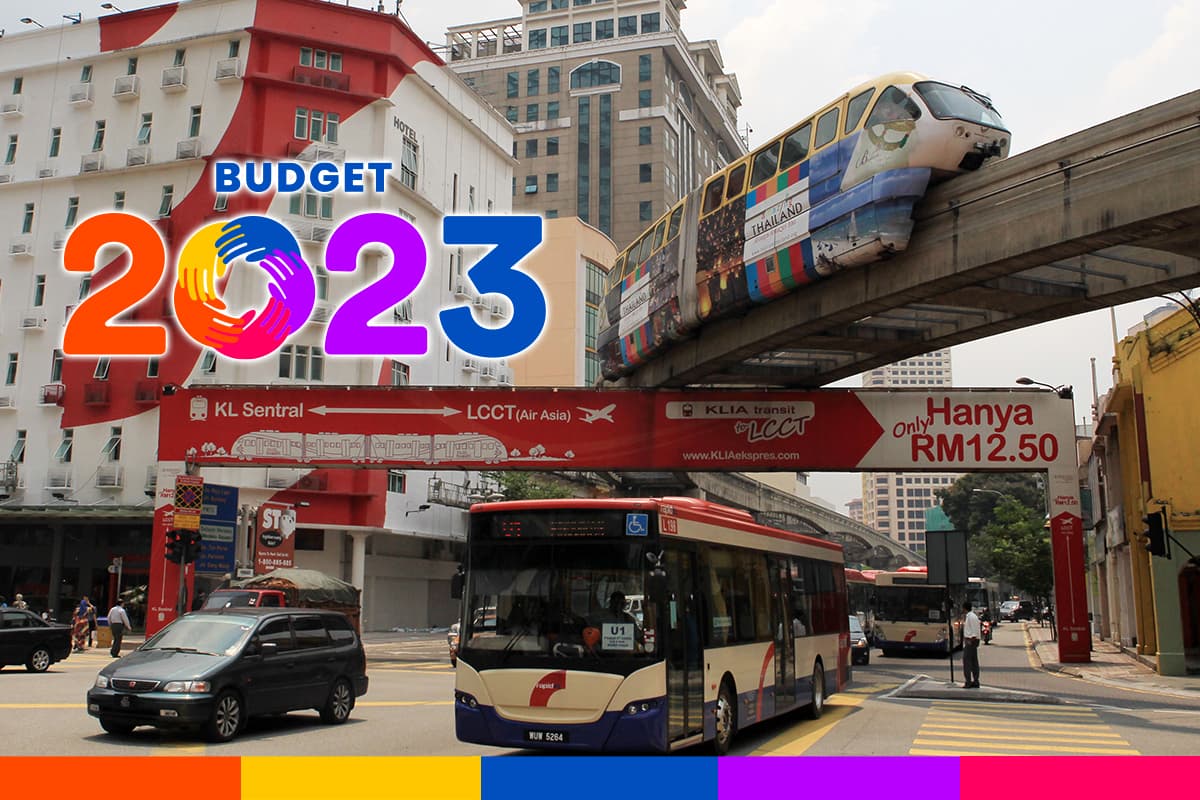
KUALA LUMPUR (Oct 7): The newly tabled Budget 2023 appeared to emit a stronger scent of election goodies than fiscal reform like broadening the revenue base of the government and plans to implement targeted fuel subsidies, according to economists.
"It is an election budget. It contains all the necessary aspects that will garner support of the voters," said Dr Yeah Kim Leng, professor of economics at Sunway University's Business School.
"Budget 2023 clearly did not mention anything on tax reforms, and fiscal reforms, especially any subsidy rationalisation. These are the key reforms that are necessary for the long term," he told theedgemarkets.com.
Yeah added that higher government spending continued to spark concerns over whether it is sustainable in the long run, particularly in the absence of revenue base expansion such as the anticipated announcement on the goods and services tax and targeted subsidy rationalisation.
In Budget 2023 that was tabled in Parliament on Friday (Oct 7), the government allocated RM272.3 billion for operating expenditure (OE), RM95 billion for development expenditure (DE) and RM5 billion for the Covid-19 Fund.
The DE of RM95 billion is possibly the highest allocation for development based on historical data compiled by The Edge.
In this regard, Socio-Economic Research Centre executive director Lee Heng Guie questioned the rationale of the classification of US$3 billion (RM13.95 billion) to redeem 1Malaysia Development Bhd bond under the DE.
"Every year DE is at a record high, but the effect on the economy is not there. It [has always been] the private consumption that drives the economy since the reopening from Covid-19 restrictions," he said.
Although Finance Minister Tengku Datuk Seri Zafrul Abdul Aziz repeatedly mentioned the importance of fiscal reform, Lee said Budget 2023 lacked concrete commitment to expanding the government's revenue base and cutting down subsidies.
"Whole stance still supports recovery, we understand that, so everyone gets a little bit of goodies; but there is nothing much when it comes to the part of how to ensure sustainability of the future.
"There is a lot of demand for resources going forward, like healthcare and ageing society, so you have to quickly address all these," he said, adding that the country would be vulnerable to the next crisis if these concerns are not addressed promptly.
UOB Global Economics & Markets Research senior economist Julia Goh also observed that the DE announced was larger than anticipated.
"The pace of fiscal consolidation was also more gradual as the fiscal deficit targets were only modestly reduced by [about] RM410 million to RM99.1 billion or 5.5% of GDP (gross domestic product) in 2023," she said.
Echoing the same sentiment, Centre for Market Education chief executive officer Dr Carmelo Ferlito pointed out the government's lack of a strategy for rationalising operational expenditure would further compromise the fiscal position.
"Here I do not see an adequate vision. The money spent on OE such as civil servants' salaries and subsidies is still very high. If we do not improve revenue collections and cut spending, debt and inflation will become more serious problems," said Ferlito.
Khazanah Research Institute chairman Tan Sri Nor Mohamed Yakcop said measures announced in Budget 2023 were "timely and bold" given the challenges faced by the nation, as they were aimed at supporting creation of job opportunities, strengthening social protection and guaranteeing food security.
Nor Mohamed said the enhancement in cash handouts should reduce financial burden of vulnerable and low-income groups, while lowering income tax rates is likely to increase the disposable income of the middle-income group currently facing financial challenges due to the rising cost of living.
"Expanding the coverage of [Socso] and EPF to include self-employed workers and homemakers will go a long way in protecting the target groups against risks emanating from economic shocks," he said.
"Budget 2023 is an important step towards ensuring that Malaysia continues on the development trajectory, anchored on the well-being of all Malaysians," he added.
The Budget with many ad hoc goodies was also tabled with the intention of safeguarding the rakyat from possible global economic fragility, said Shan Saeed, chief economist at Juwai IQI.
"It was expected the government would want to make the domestic front stronger so that they can face external headwinds. It's a very growth focused and pragmatic budget, taking into account that the global economic fragility is getting bigger. In order to shield the domestic economy, they have focused heavily on the domestic economy," he said.
He added that the decision to reduce personal income tax signalled the government's intention to introduce stimulus in the economy to encourage more spending from people, which would eventually strengthen the domestic economy.
RAM Rating Services Bhd noted that government debt was estimated to remain hefty at RM1.14 trillion (63% of gross domestic product) in 2023.
“This raises some concern as fiscal space is constrained, with debt-servicing costs remaining significant at 16.9% of revenue in 2023,” the rating agency warned.
It said Malaysia continued to undertake a gradual fiscal consolidation path with the fiscal deficit projected to narrow to 5.5% by end-2023 (2022e: 5.8%) in line with reaching the targeted 3.5% by 2025 set under the 12th Malaysia Plan.
RAM said the government’s growth target of 4%-5% was seen as realistic and would be mainly supported by domestic demand amid softer global activity.
Get our comprehensive coverage of Budget 2023 here.